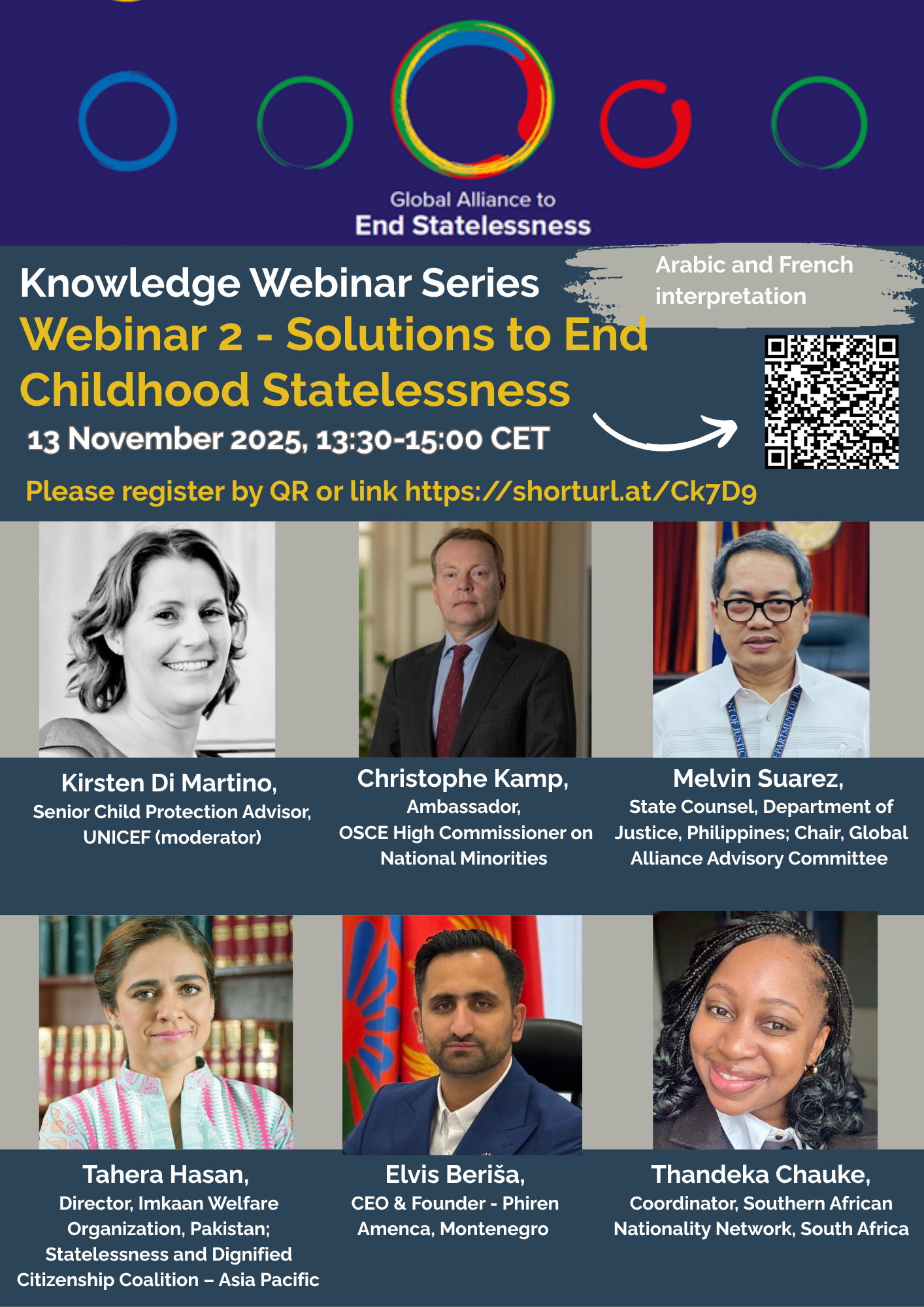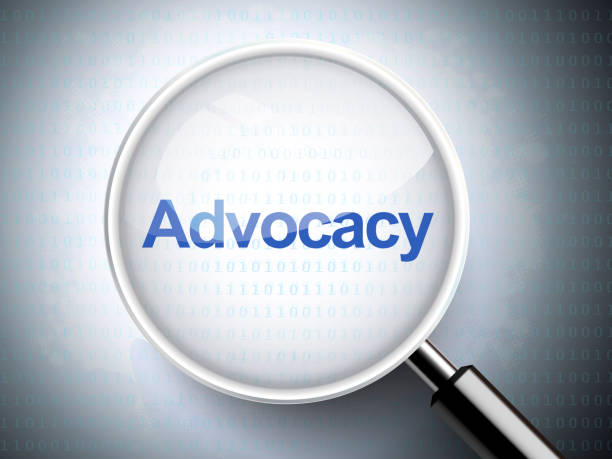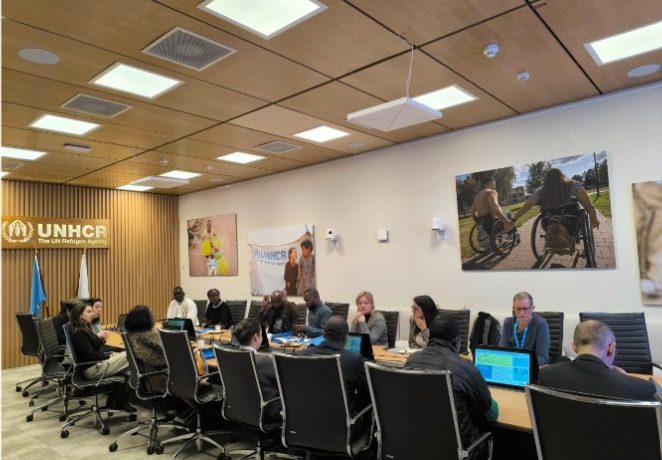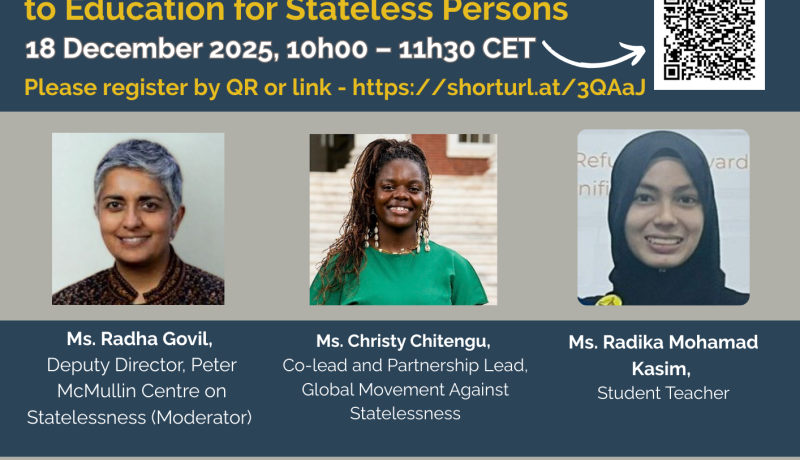Global Alliance Webinar Highlights Practical Solutions to End Childhood Statelessness

The Global Alliance to End Statelessness held its second Knowledge Webinar on 13 November, focusing on “Solutions to End Childhood Statelessness.” Childhood statelessness remains one of the most pressing issue, widely recognized by Global Alliance members and stakeholders as requiring intensified action, with governments carrying a clear legal and moral obligation under the Convention on the Rights of the Child (CRC) to ensure that every child acquires a nationality at birth or as early as possible.
Organized by the Thematic Working Group (TWG) on Ending Childhood Statelessness, the session was moderated by Kirsten Di Martino, Senior Child Protection Advisor at UNICEF and the TWG Co-Chair. She welcomed five distinguished speakers representing governments, regional organizations, and civil society across Asia-Pacific, Africa, and Europe.
Keynote speaker Ambassador Christophe Kamp, OSCE High Commissioner on National Minorities, emphasized the strong link between statelessness and social cohesion. “Preventing statelessness from the very start of life is one of the most effective ways to promote inclusion, strengthen social cohesion, and ensure equal opportunities for future generations,” he noted. Ambassador Kamp also highlighted close OSCE-UNHCR cooperation, including their 2025 publication on the Prevention of Childhood Statelessness, featuring best practices from countries such as North Macedonia and Kazakhstan.
Government Action: The Philippines’ Foundling Act
From a government perspective, Melvin Suarez, State Counsel at the Department of Justice of the Philippines and Chair of the Global Alliance Advisory Committee, shared the country’s legal developments to protect the rights of foundlings. He outlined key court cases that shaped the Foundling Act of 2022, demonstrating how jurisprudence can drive stronger guarantees against childhood statelessness.
Humanizing Childhood Statelessness
Tahera Hasan, Director of Imkaan Welfare Organization, Pakistan, brought an on-the-ground lens. Her organization – Pakistan’s only organization dedicated to statelessness – supports communities in navigating bureaucracy, accessing mental health services to “repair what exclusion has damaged,” and empowering affected communities through vocational training. She highlighted the transformative role of sport through the powerful stories of young girls without documentation gaining confidence and reclaiming their rights through sports, with one even representing Pakistan internationally. She stressed that sport, combined with media, can humanize the issue of childhood statelessness: “Girls who were once invisible to the state are now wearing Pakistan’s colors, proving that identity is more than a document, it is a sense of belonging that cannot be denied.”
From Europe, Elvis Berisha, Founder and CEO of Phiren Amenca, which works with the Roma community in Montenegro, shared his personal and organizational experience. Once a stateless child himself, he underscored the real and painful implications of childhood statelessness: “For the people I meet every day, childhood statelessness is not a technical issue – it is deeply real and painful,” he said. He highlighted persistent implementation gaps in national legislation, emphasizing that legal provisions alone are insufficient without active enforcement and community awareness.
African Union Protocol and Grass-Roots Approaches
In Africa, the African Union adopted the Protocol to the African Charter on Human and Peoples’ Rights Relating to the Specific Aspects of the Right to a Nationality and the Eradication of Statelessness in Africa in February 2024. Thandeka Chauke, on behalf of the Southern African Nationality Network, presented an innovative approach to raising awareness among children and communities about their rights under the new Protocol. The Network developed an accessible booklet that translates complex legal texts into straightforward language and illustrations, available in multiple languages, with plans for an animated version for children. This approach empowers children and communities to understand and claim their rights.
A Shared Commitment to Ending Childhood Statelessness
The webinar showcased practical, diverse strategies – from legislation and regional frameworks to community empowerment and storytelling – all aligned with the Global Alliance’s mission to ensure every child’s right to a nationality. It also underscored how the Global Alliance contributes to exchange of expertise, strengthens collaboration among key stakeholders, and advances tangible solutions.
The Webinar recording can be found here.
11 February 2026
Support the Joint Statement: Advancing Vocational Inclusion of Stateless People Across the UN

As part of a multi-pronged advocacy approach to scale up UNHCR’s good practice of removing barriers to the employment of stateless persons, the Joint Statement, drafted by Apatride Network, seeks to encourage all UN entities to follow suit. We are calling on Global Alliance members and other organizations to endorse it and sign on.
Read more6 February 2026
Call for Applications: UNHCR Global Advisory Board of Organizations Led by Forcibly Displaced and Stateless Persons

The United Nations High Commissioner for Refugees (UNHCR) has launched a Call for Expression of Interest for its Global Advisory Board of Organizations Led by Forcibly Displaced and Stateless (2026–2028). We strongly encourage stateless-led organizations within the Global Alliance network and beyond to apply by 8 February and bring their expertise and lived experience to this important global platform.
Read more8 January 2026
Realizing the Right to Education for Stateless Persons

On 18 December 2025, Radha Govil, Deputy Director of the Peter McMullin Centre on Statelessness and Co-lead of the Thematic Working Group (TWG) on Protecting the Rights of Stateless Persons, moderated the fifth and final Global Alliance webinar of the year: “Unlocking Futures: Realizing the Right to Education for Stateless Persons.”
Read more